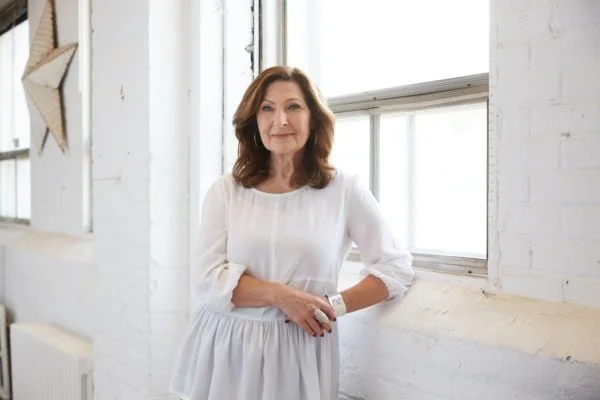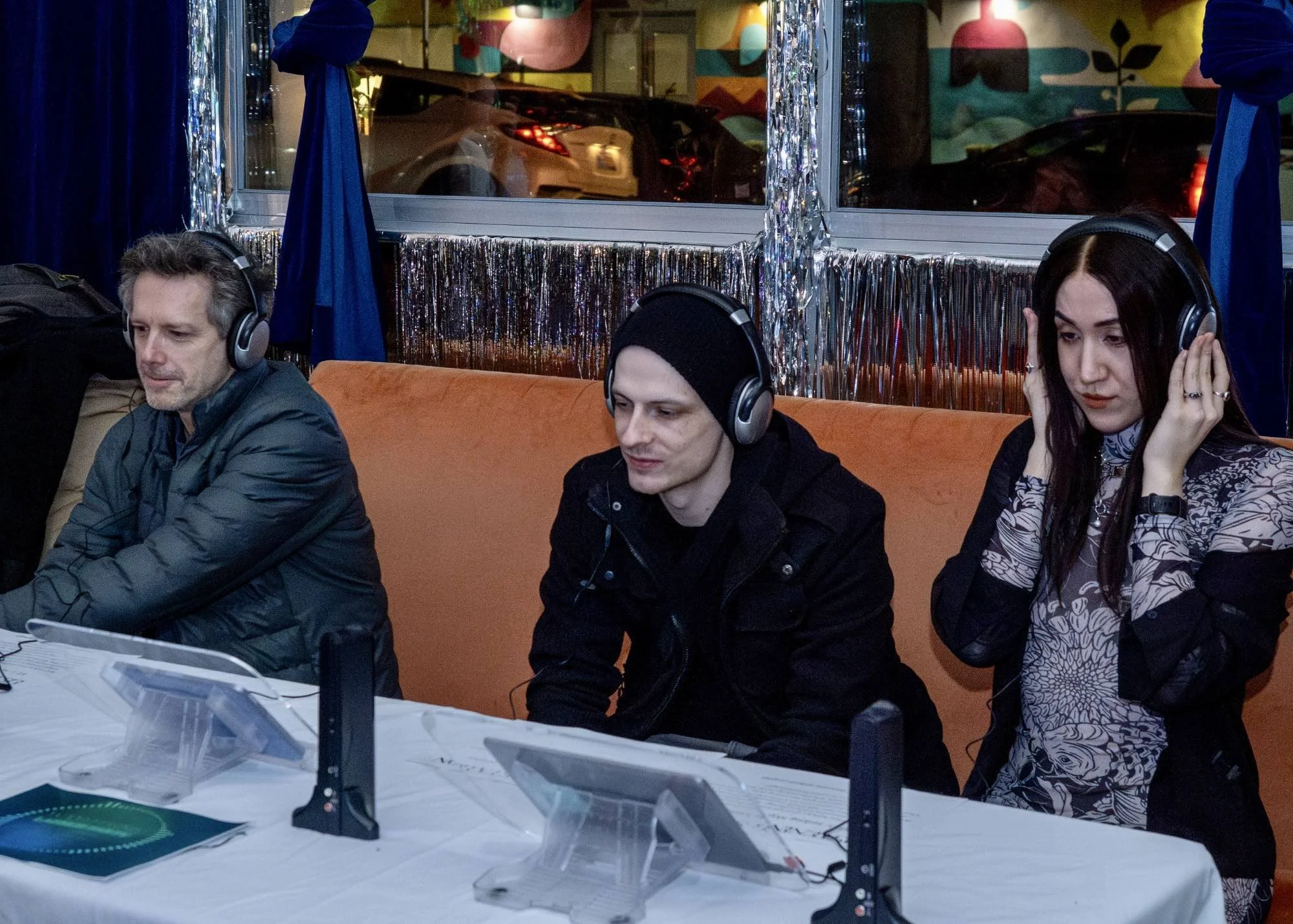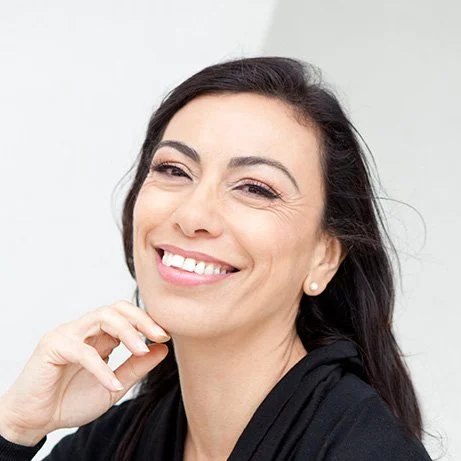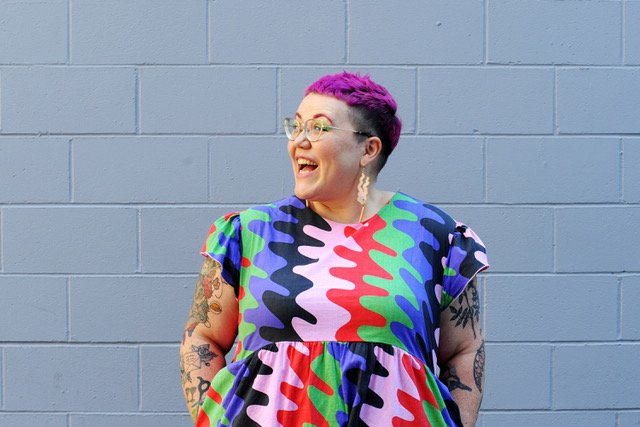Journalist Anna Maria Tremonti reflects on shame, empathy, and the overwhelming response to her podcast Welcome to Paradise
The former host of CBC’s The Current will speak about her journey through intimate-partner violence, and the skills to face a world in change
Anna Maria Tremonti says she’s found her true voice since revealing her deepest secret in the podcast Welcome to Paradise.
Anna Maria Tremonti speaks at the BlueShore at CapU on December 7 at 8 pm
AS THE FORMER longtime host of CBC’s The Current, Anna Maria Tremonti has a voice that’s familiar to Canadians across the country. So it’s surprising to discover that the respected journalist, who speaks at BlueShore Theatre at CapU on December 7, feels like it’s only now that she is beginning to find that voice.
The process started earlier this year, when she released Welcome to Paradise—the CBC podcast that reveals the secret she carried for 40 years through her career as a foreign affairs reporter and TV and radio personality. At 23, she married a man who viciously abused her. She left him a year later, but the ripple effects of that trauma and the shame she felt around it have lasted a lifetime. The podcast marked the first time Tremonti told anyone the details of what she endured.
“For me, the story of Welcome to Paradise was about finding a voice,” she tells Stir over the phone from her home in Toronto. “In a way, before that, I found my voice by trying to help other people find theirs—I was deflecting because that was easier than talking about my own thing.”
At her talk here, Tremonti will speak about how she worked through the trauma of intimate-partner violence, but will also use it as a springboard for discussing the vast challenges the world is facing today: a pandemic, war in Ukraine, and a climate crisis.
“As a journalist for so many years, I’ve seen how people react to things they weren't expecting, and faced the change that just sort of confronts you,” Tremonti reflects. “We’ve hit an intersection with all these issues and it’s very polarizing—and with polarization comes fear. So how do you find that way forward?”
In Tremonti’s personal life, she found her way forward by finally sharing her story. She’s been encouraged by the overwhelming positive response to the podcast.
“A lot of people pass each other on the street each day and we don't understand that we’re not alone,” she reflects. “Hundreds have written to me about their own shame—that’s how I realized how many people are out there holding their shame. That was a surprise—how I hit a nerve. Even though I understood the universality of it at an intellectual level, this was at a visceral level.
“The feedback has been gratifying,” she adds. “If it can make you see yourself differently and forgive yourself and heal in a new way or identify something, then it’s been worth it.”
The journalist, who left The Current in 2019 after 17 years to start to work on CBC podcasts, says releasing Welcome to Paradise has felt like letting go of a burden she’s carried for four decades—but the writing of it, and re-exploring the brutal beatings she experienced at 23, were incredibly difficult. Some of the hardest revelations came from sharing private sessions with her therapist—a big component of the podcast.
It’s only in retrospect, since she’s finished the podcast, that she truly grasps how much danger she was in during her yearlong marriage to her abuser—a time when she hid the bruises that covered her body from everyone she knew. “I didn’t really understand the role of coercive control and how it can lead to murder,” she says now.
In her podcast, and in her appearance here, the Windsor-born Tremonti talks about how her experiences built a deep empathy for the people she would interview throughout her career. That includes her acclaimed work interviewing the women of Bosnia who had experienced sexual violence during that war, which Tremonti covered as a foreign correspondent for CBC.
Anyone who listened to her long-running morning show The Current knows that Tremonti is an unusually gifted listener. Asked if she thinks she was born with that skill, she says with a laugh: “I can’t think of anything as a kid where I really listened–I liked to talk! But as a journalist I wasn’t really interested in talking about myself. I also have understood you really need to listen to what people are saying because they're telling you really important things–people are really sharing a piece of themselves.”
Of her radio show, she reflects: “I think of it like sitting across the kitchen table from someone—I want the person listening to feel like they're the third person in the room.”
A lot of what she is seeing around the world today is bringing her back to the strength and suffering of the people she’s interviewed over the years. The Ukrainian war, in particular, has her filled with dread; it feels too close to what she witnessed in the Bosnian conflict, “when you cross that line into violence, and all those civilians who get caught in the middle.”
She’s also fascinated by the hoax theories being spread around global warming and the pandemic. “You can see the damage that can be done and it’s very sobering, because it’s a time when you need to see people working together,” she says. “I’m kind of fascinated and terrified by that.”
She’ll explore a lot of those observations in her talk here, as well as sharing the skills she’s acquired around assessing risk, dealing with fear, carrying on through failure, and reimagining success. What may come through most strikingly is that, through both her professional career and her personal journey moving beyond trauma, Tremonti retains a positive outlook.
“I like to think I’m an optimist –that in every crisis there’s an opportunity to go forward,” she observes. “But I do feel like at this particular moment in time we have to think differently to move forward.”














